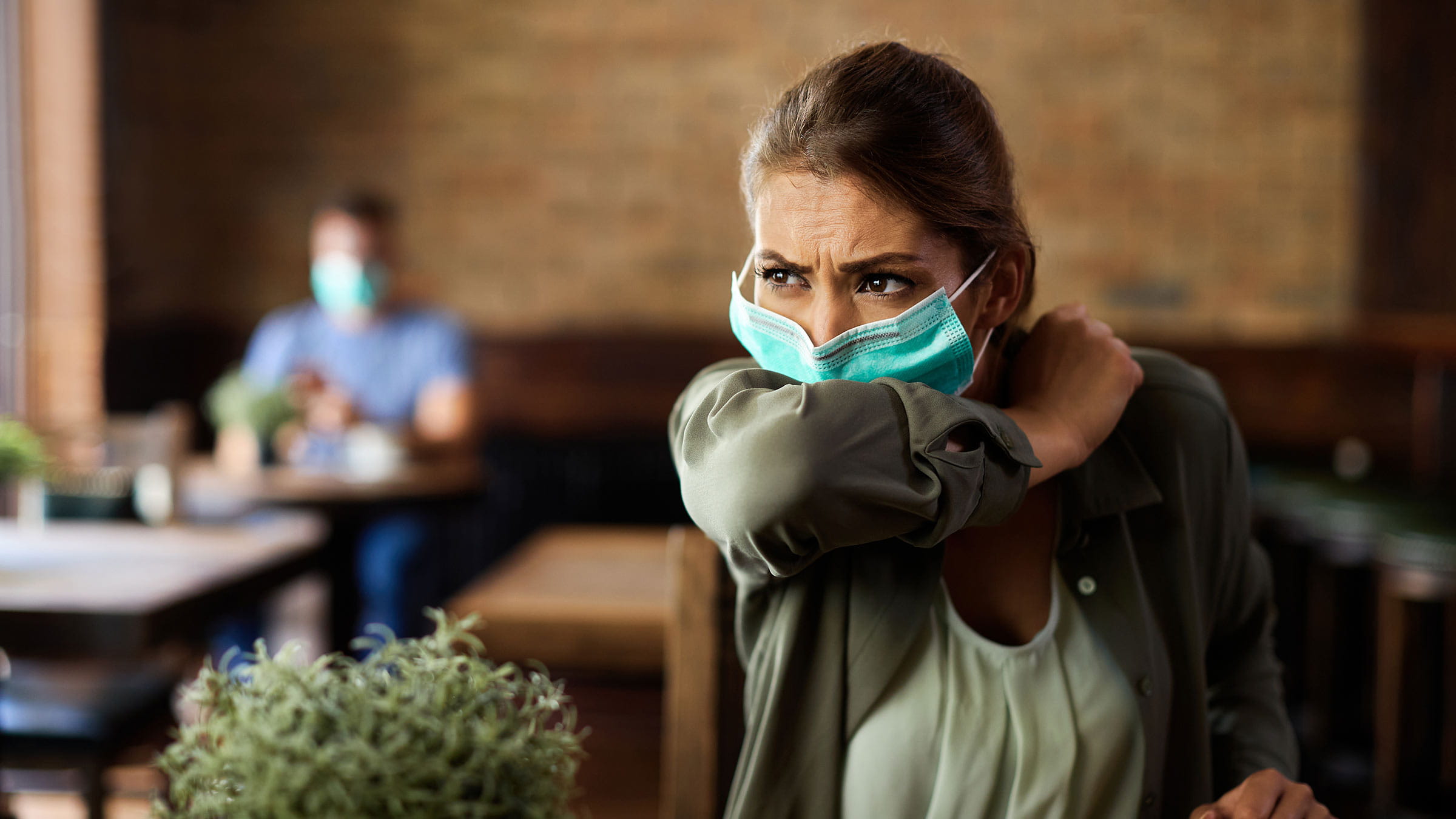
Editor’s note: As what we know about COVID-19 evolves, so could the information in this story. Find our most recent COVID-19 articles here and learn the latest in COVID-19 prevention at the Centers for Disease Control and Prevention. Some photos and videos on this site were filmed prior to the COVID-19 outbreak or may not reflect current physical distancing and/or masking guidelines.
Say you woke up this morning with watery eyes and a runny nose. During any other time, you’d figure your allergies were acting up. But with COVID-19 in the picture, you suddenly find yourself with a whole new set of questions.
Is this really allergies, or something more concerning?
Here, I’ll answer a few of the questions you might have about these two very different conditions — and outline what they actually have in common.
What are the main differences between COVID-19 and allergies?
COVID-19 is caused by a viral infection, and while it can cause severe complications, for many patients symptoms may resolve relatively quickly without medical intervention. Because it’s infectious, COVID-19 can be transmitted between individuals.
Allergies are caused by sensitivity to allergens, such as pollen or pets, and the symptoms may last much longer. In some cases, this may be an entire pollen season or, in the case of pets, year-round. Allergies aren’t passed from person to person.
Are there any obvious signs to tell whether you’re suffering from allergies or COVID-19?
Common signs of allergies include nasal congestion, sneezing and itchy, watery eyes. These symptoms may vary situationally, and getting away from allergic triggers can reduce symptoms. COVID-19 symptoms may be more consistent, regardless of context. That said, there can be quite a bit of overlap, so if there’s any question about whether symptoms are due to COVID-19 or allergies, COVID-19 testing at home or at a physician's office or pharmacy could help to clarify this.
Climate change is causing longer, more sever allergy seasons
I know I suffer from allergies, but is it possible my runny nose and sneezing is caused by COVID-19?
Both allergies and COVID-19 can cause congestion, runny nose and sneezing. One key symptom in COVID-19 patients is loss of smell, so you should monitor for this, especially if the loss of smell occurs rapidly. Because there can be overlap in allergy and COVID-19 symptoms, if you have any concern about new or different symptoms, particularly if you suspect you’ve been exposed to COVID-19, I recommend taking a COVID-19 test or talking to your medical provider.
Can you have allergies and COVID-19 at the same time?
Yes, patients can experience allergies and COVID-19 symptoms concurrently.
With COVID-19 around, is it safe to continue to take my allergy medications?
It’s important to continue chronic allergy and asthma medications throughout the COVID-19 pandemic. If medications are stopped and symptoms flare, this may result in additional visits to your doctor.
Am I still contagious from COVID-19?
Do my allergies put me at greater risk for severe illness from COVID-19?
Guidelines from the federal Centers for Disease Control and Prevention indicate that patients with moderate to severe asthma may be at increased risk of severe COVID-19 infection. Patients with allergic asthma also may be at increased risk. For general environmental allergies, there is no indication that patients would be at increased risk of severe COVID-19 infection.
Will I be protected from seasonal allergies if I wear a mask during the COVID-19 pandemic?
Many allergy patients wear masks during their allergy season for periods of high-allergen exposure, such as yard work. While this may not completely prevent allergen exposure, wearing a mask may help to reduce some seasonal allergy symptoms.

Ready to learn more about allergy and immunology care?
Ohio State's allergy and immunology team provides comprehensive care backed by one of the nation's leading academic health centers.
Expert care starts here




